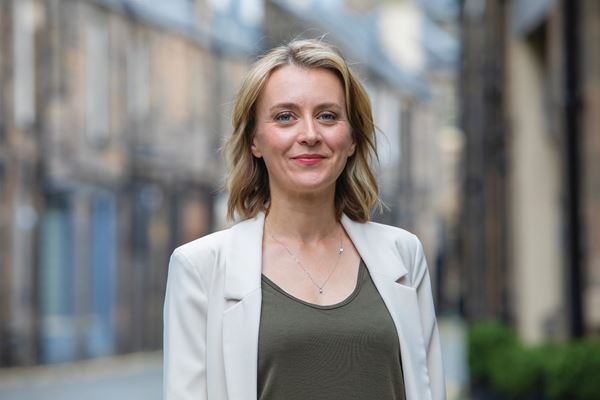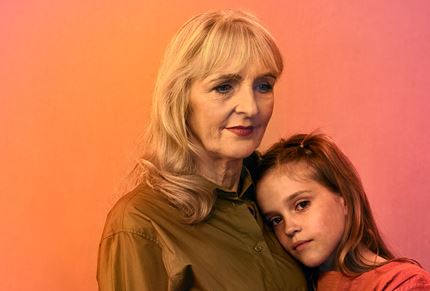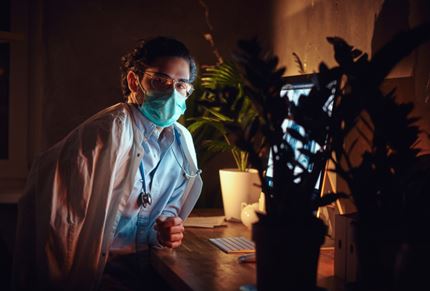Alternative cancer therapies – everything you need to know
31st May 2023
Alternative therapies - such as herbal medicines and homeopathy - are sometimes advertised as a way to cure cancer. We often get asked whether there is any evidence around these claims. Our answer is clear: There is no scientific proof that alternative therapies can cure cancer, and it can be dangerous to use them instead of conventional treatments. However, we know that facing a cancer diagnosis can be overwhelming and people may look for alternative treatments to help them feel better. Here we explain more about alternative therapies and answer some of your questions.
What is alternative therapy?
Cancer is conventionally treated by surgery, chemotherapy, radiotherapy, or a combination of these options. Increasingly, immunotherapy and other new targeted treatments are also being used to treat cancer. Using an alternative therapy means choosing to treat cancer with something other than these conventional treatments.
Alternative therapies include:
- Homeopathy
- Herbal medicines
- Acupuncture
- Foods believed to have curative properties, such as apricot kernels
- CBD oil

What is the evidence around alternative therapies?
There is no scientific proof that alternative therapies can cure cancer or slow its growth – in fact, they can be damaging if someone chooses to use an alternative therapy instead of the cancer treatment recommended by their doctor. If there were sufficient evidence that an alternative therapy successfully treated cancer, it would be used alongside other conventional therapies like chemotherapy and surgery.
Research in America has found that people using alternative therapies were more likely to die than those using conventional treatments. Cancer comes in many forms and can require very different treatment options person to person, so it is very important to follow the medical advice of your doctor to make sure you are receiving the best treatment for your own needs.
Are alternative therapies different to complementary therapies?
The short answer is ‘yes’. Alternative therapies are taken instead of conventional, recommended treatments, while complementary therapies are taken alongside conventional treatments.
Complementary treatments, such as practicing meditation or following a particular diet, can sometimes help to ease the side effects of cancer treatment or make it easier to cope with the stress associated with a cancer diagnosis. It is always best to check with your doctor before using any complementary therapy to make sure that it won’t have any harmful effects or interfere with your treatment plan.

Don’t many treatments come from plants?
Some treatments for cancer and other diseases were originally based on plant extracts, however the development of a drug usually requires that the medicinal part of the plant is extracted or produced in a controlled, measured way. All medicines have to go through rigorous clinical trials to make sure that they work on people and that they are safe to use.
An example is the chemotherapy drug pacilitaxel (also called Taxol) which is used to treat a number of cancer types including breast cancer and ovarian cancer. Taxol is based on an active ingredient originally found in the bark of the Pacific Yew tree, which researchers discovered was toxic to cells. The researchers had the good idea that it could be used to destroy cancer cells, but it took years of research to study how it works, develop the drug and run clinical trials to test that it treats cancer and is safe for people.

Where can I find further information?
We would recommend only following advice from trusted sources, such as your health provider, government, or other reputable organisations. Look for well sourced information that fairly represents the evidence for, and risks associated with, different treatments. Anything suggesting to be a cure for cancer with no side effects or long term effects is unlikely to be true.
If you have any questions about potential treatments, your doctor is the person best equipped to advise you. If you are looking for complimentary therapies Penny Brohn UK is a health and wellbeing charity that can help you find the best evidence-based supportive therapies to work alongside your clinical treatment. Maggies have support specialists, psychologists and benefits advisors who can help you find your way to live with cancer.
What is Worldwide Cancer Research’s position on alternative cancer therapies?
“At Worldwide Cancer Research we support scientists looking for new ways to prevent, diagnose and treat cancer. All treatments for cancer recommended by doctors are based on years of research and evidence. Surgery, chemotherapy, radiotherapy and targeted treatments are the best ways to treat cancer. There is no scientific evidence to show that alternative therapies are effective at treating cancer and taking them instead of conventional treatments can be dangerous. We would always recommend that you follow the treatment plan put together by your doctor and ideally tell your oncologist about any complimentary therapies you are taking.” – Dr Helen Rippon, CEO, Worldwide Cancer Research




